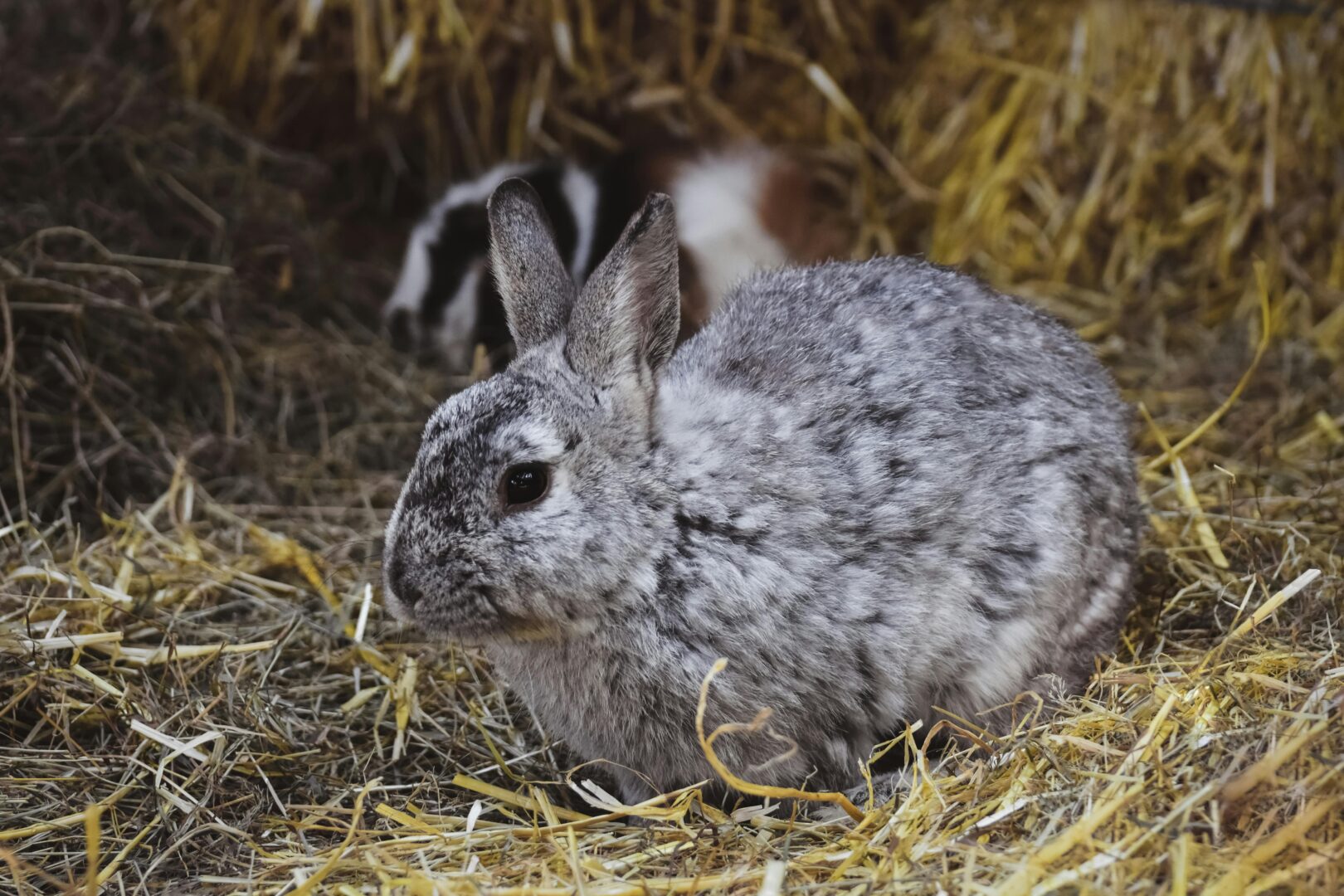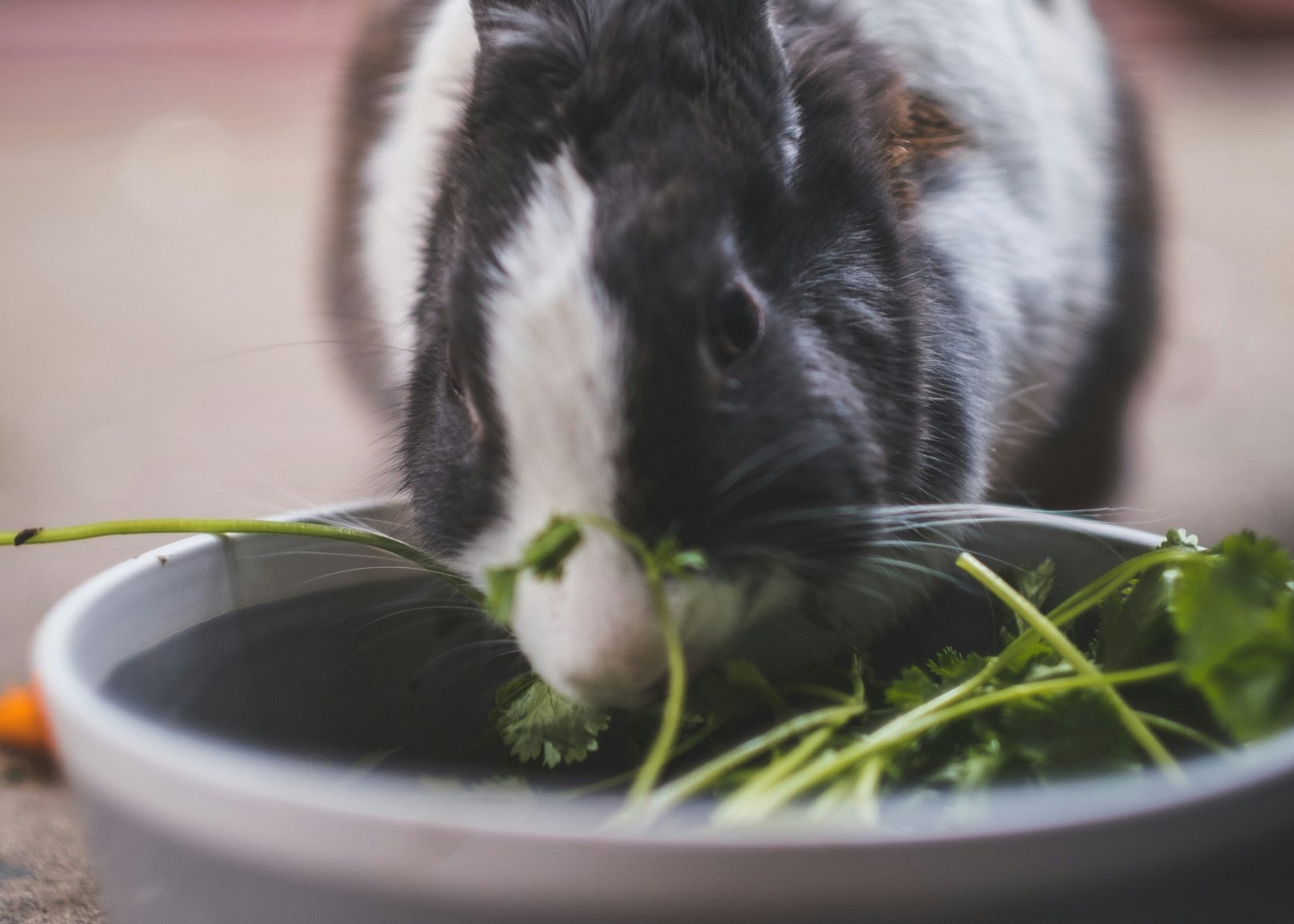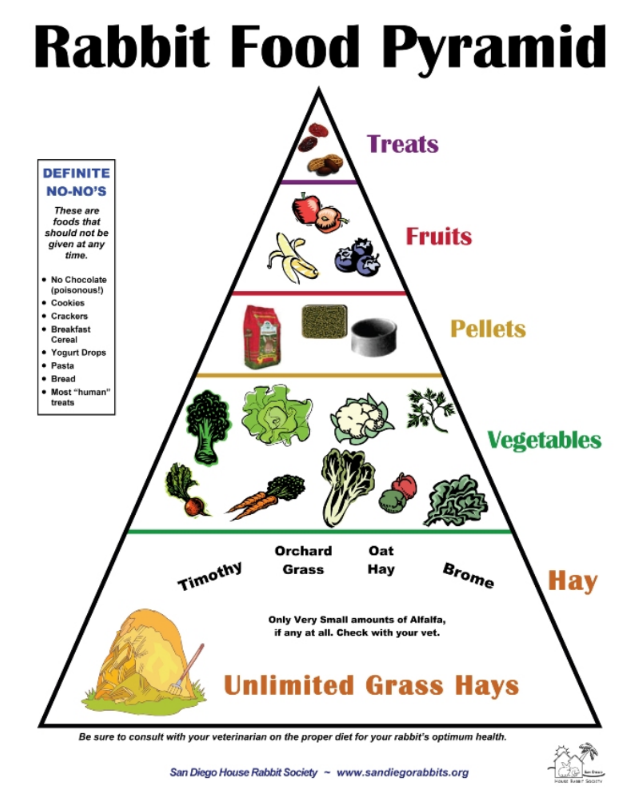Hay is the most important part of an adult rabbit’s diet. It is high in fiber, which keeps the digestive tract moving, helping to prevent blockages and stasis. In addition, hay helps to sustain healthy teeth by helping to reduce the risk of molar spurs.
Hay Types
| Hay Type | Rabbit Age | Additional Notes |
| Alfalfa | Young (< 7 months) | Also used for nursing mothers and rabbits with health conditions. Has too much protein for adult rabbits. |
| Timothy Hay | Adult | |
| Orchard Grass | Adult | Less dusty; tends to be better for those with grass allergies. |
| Meadow Hay | Adult | |
| Brome Hay | Adult | |
| Oat Hay | Adult |
Good hay should always smell like grass. Never feed your rabbit moldy hay because it can make a rabbit seriously ill. Also, if your hay does not have a fresh smell, your rabbit may not eat it, which can thereby compromise his or her gut motility (passage of food through the system).
Rabbits will go through a surprising amount of hay (roughly a bunch the same size as the rabbit, daily). Because of this, we recommend purchasing hay in larger quantities because it’s generally much cheaper that way.
We use Oxbow hay products with our rescues, and carry both small and large quantities that are available for purchase.



